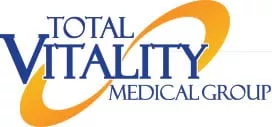Regular health screenings are a vital part of preventive healthcare. They enable the early detection of diseases and risk factors—such as hypertension, diabetes, and various cancers—when treatments are most effective. This article explains how screenings work, the types available, and their role in disease prevention and overall well-being. It also covers how to prepare for your primary care appointments and overcome common obstacles, ensuring you remain proactive in managing your health.
Transitioning from the general benefits, the following sections provide insights into what health screenings are, who should get them, and why they are essential for effective disease management.
What Are Regular Health Screenings and Why Do They Matter?
Regular health screenings involve periodic medical tests and evaluations performed even if no symptoms are present. Their main goal is to detect health issues early so that appropriate interventions can begin promptly. These screenings monitor vital signs and key biomarkers—such as blood pressure, glucose levels, lipid profiles, and body mass index—and assess risk factors that may lead to serious conditions like cardiovascular disease, cancer, or diabetes.
What Is a Health Screening and How Does It Detect Diseases Early?
Screenings include blood tests, imaging procedures, and physical exams that detect abnormalities before symptoms occur. For example, a mammogram can reveal early signs of breast cancer, and a colonoscopy may find precancerous polyps. Early detection through these methods can lead to significantly improved treatment outcomes and survival rates, as minor issues can be managed before they develop into severe conditions.
How Do Health Screenings Contribute to Disease Prevention and Well-Being?
By identifying risk factors early, health screenings allow for interventions such as dietary changes, increased physical activity, or medications to prevent serious events like heart attacks or strokes. They encourage a proactive mindset in healthcare, prompting healthier lifestyle choices and timely follow-up care. Regular monitoring of blood glucose, for instance, is crucial for managing diabetes and preventing its long-term complications.
Which Common Types of Health Screenings Should You Know About?
Essential screenings include: – Blood Pressure, Cholesterol, and Lipid Tests: Help manage cardiovascular risks. – Blood Tests for Glucose Levels, Liver, and Kidney Function: Monitor metabolic health. – Cancer Screenings: Such as mammograms, colonoscopies, Pap smears, and prostate exams. Newer tests like glycated hemoglobin (HbA1c) and low-dose CT scans for lung cancer in high-risk individuals have also expanded preventive options.
How Do Regular Health Screenings Improve Your Overall Well-Being?
Screenings improve well-being by detecting health issues early and allowing timely lifestyle adjustments. They serve not only to detect disease but also to track overall health trends, giving patients a better opportunity to discuss preventive strategies with healthcare professionals.
In What Ways Do Screenings Help Maintain Physical Health and Comfort?
Regular tests offer quantifiable health measures that guide interventions. Routine blood pressure monitoring, for example, can detect hypertension before it leads to complications like heart disease or stroke. Similarly, cholesterol checks help diagnose issues that may require changes in diet or medication. By tracking changes in weight and metabolic markers, doctors can tailor exercise and nutrition plans to maintain physical fitness and comfort.
How Can Early Detection Through Screenings Reduce Health Risks?
Detecting conditions early, such as a small tumor on a mammogram or early liver dysfunction on blood tests, allows for less invasive treatments and timely lifestyle modifications. This preemptive approach not only reduces long-term healthcare costs but also lessens the burden on patients, resulting in a better quality of life and extended longevity.
What Role Do Screenings Play in Managing Chronic Conditions Proactively?
For chronic illnesses such as diabetes, heart disease, or kidney disease, screenings are critical. They enable healthcare providers to track key biomarkers like blood sugar, cholesterol, and kidney function. This ongoing evaluation makes it possible to adjust medications and treatment plans proactively, reducing complications and improving outcomes.
Who Should Get Regular Health Screenings and When?
Almost everyone can benefit from regular health screenings, although specific tests and their frequency depend on an individual’s risk factors, age, gender, and family history. Generally: – Adults Over 40: Advised to have more comprehensive screenings. – Younger Adults: May require routine check-ups based on lifestyle and risk factors. – Women: Often need regular mammograms and Pap smears. – Men: Might be advised to undergo prostate exams as they age. Individuals with a family history of chronic diseases, obesity, smoking, or previous abnormal tests should follow more rigorous screening schedules.
How Do Age and Risk Factors Influence Screening Recommendations?
Age and risk factors are key when planning a screening schedule. For example, a healthy 30‑year‑old might only need basic tests, whereas someone with a family history of colon cancer might begin colonoscopy screening before age 50. Similarly, patients with hypertension or high BMI generally require more frequent cardiovascular evaluations as their risk of heart disease increases.
What Screenings Are Essential for Different Life Stages and Health Goals?
Different life stages call for specific screenings: – Young Adults: Focus on general health, blood pressure, and cholesterol. – Middle Age: Emphasis on screenings for type 2 diabetes, colorectal cancers, and cardiovascular diseases. – Seniors: In addition to the above, screenings for bone density, cognitive function, and vision become important. Personalized health plans cater to individual risks and goals, ensuring each person gets the tests most beneficial for their current stage of life.
How Can Personalized Health Plans Optimize Your Screening Schedule?
Personalized health plans that consider genetic factors, family history, and lifestyle details can significantly improve screening efficiency. When healthcare providers tailor screening schedules based on individual risk profiles, preventive measures become more effective. This approach might combine traditional tests (blood pressure, cholesterol) with advanced diagnostics (genetic screenings, high-precision imaging) and is often supported by digital tools that help schedule appointments and track health trends.
What Are the Most Important Types of Health Screenings to Consider?
A well-rounded preventive care strategy includes several essential screenings: – Cancer Screenings: Mammograms for breast cancer, colonoscopies for colorectal cancer, Pap smears, and prostate exams. – Cardiovascular Evaluations: Blood pressure, lipid profiles, and blood tests for glucose. – Metabolic and Other Tests: Assessments that check overall metabolic health and organ function. Each of these tests provides critical information that helps direct subsequent medical interventions if issues arise.
Why Are Mammograms and Colonoscopies Critical for Cancer Prevention?
Mammograms and colonoscopies are key cancer screening tools. Mammograms detect early breast cancer signs, and their regular use has been shown to lower breast cancer deaths. Colonoscopies can find and remove precancerous polyps, significantly reducing the risk of colorectal cancer. Both tests serve as early warning systems, helping to prevent the progression of potentially life-threatening conditions.
How Do Blood Tests and Cholesterol Checks Support Heart Health?
Blood tests that assess lipid profiles and glucose levels are fundamental in preventing heart disease. Regular cholesterol checks measure the balance between LDL and HDL cholesterol, while glucose tests can identify prediabetes. Together, these tests allow for timely lifestyle or medication adjustments to avert coronary artery disease and other heart-related complications.
What Other Preventive Screenings Should You Not Overlook?
In addition to cancer and cardiovascular screenings, other tests are also important: – Blood Pressure Monitoring: Essential for controlling hypertension. – Bone Density Tests: Important for detecting osteoporosis, especially in postmenopausal women. – Cervical Cancer Screenings: Such as Pap tests for early detection. – Prostate Examinations: For men over 50, to monitor prostate health. Newer screening technologies, like low-dose CT scans for lung cancer, further complement these efforts by addressing potential oncological threats in high-risk populations.
How Can You Prepare for and Make the Most of Your Health Screenings?
Preparation is key to ensuring accurate screening results. Start by scheduling an appointment and understanding which tests will be performed. Discuss any personal concerns or symptoms with your healthcare provider ahead of time. Being well-prepared—by following fasting instructions, adjusting medications if needed, and reviewing your medical history—ensures clearer results and reduces stress on the day of the exam.
What Steps Should You Take Before Attending a Screening Appointment?
Before your appointment, confirm any special instructions from your healthcare center, such as fasting for 8–12 hours or avoiding specific medications or foods. Compile a concise medical history that includes family history, current medications, and any recent health changes. Making a list of questions for your doctor and arriving early to complete necessary paperwork can also help ensure a smooth and productive visit.
How Do You Interpret Screening Results and Next Steps?
Screening results should be reviewed with your healthcare provider, who can explain what individual numbers and images signify for your health. An abnormal result—like elevated cholesterol—might indicate the need for dietary changes or more exercise, while a concerning mammogram might require further imaging or even a biopsy. A follow-up consultation can help you understand the results and decide on any required additional tests or lifestyle adjustments.
How Can Healthcare Providers Support Your Screening Journey?
Healthcare providers guide you through screening by explaining results clearly, offering personalized recommendations, and providing ongoing support. They may arrange further tests if necessary and use digital reminders to help maintain your screening schedule. Their support ensures you understand your health metrics and make informed decisions regarding preventive care.
What Are the Barriers to Regular Health Screenings and How Can You Overcome Them?
Despite the many benefits, some individuals face obstacles that can interfere with regular screenings. Common barriers include financial constraints, fear of diagnosis, limited access to healthcare, and busy schedules. Misinformation about the screening process can also discourage people from seeking preventive care.
Why Do Some People Avoid Screenings Despite Their Benefits?
Fear of finding serious illnesses, discomfort in medical settings, or the misconception that screenings are only needed when symptoms are present can lead some to avoid them. Financial concerns and possible out-of-pocket expenses further complicate matters. Education about the benefits of early detection and the availability of affordable options can help overcome these barriers.
How Can Personalized Recommendations and Scheduling Tools Improve Screening Adherence?
When healthcare providers offer personalized screening recommendations supported by digital scheduling and reminder systems, patients are more likely to adhere to their screening programs. Mobile health apps and online portals can simplify appointment scheduling and help track progress, making preventive care more accessible and less overwhelming.
What Resources Are Available to Help You Access Preventive Care Easily?
Several resources can ease access to screenings. Community health centers, government programs, and employer initiatives often offer low-cost or free screenings. Telehealth consultations can also help you determine the best screening options and schedule appointments conveniently. Online platforms provide detailed information on local clinics, insurance coverage, and up-to-date screening guidelines.
How Does Tracking Your Health Metrics Enhance the Value of Regular Screenings?
Regular tracking of health metrics—such as blood pressure, cholesterol, blood glucose, and weight—enhances the preventive value of screenings. Monitoring these vital signs over time provides a comprehensive view of your health and can alert both you and your doctor to subtle changes that signal potential problems.
What Health Metrics Should You Monitor Alongside Screenings?
Alongside scheduled screenings, pay attention to continuous monitoring of: – Blood pressure and heart rate – Fasting blood glucose and HbA1c levels – Body mass index (BMI) Keeping a record of these metrics supports early detection of changes that might require lifestyle modifications or further medical intervention.
How Does Continuous Tracking Support Proactive Health Management?
By regularly logging key health data, you enable timely interventions before minor issues become major challenges. This proactive approach is especially beneficial for those with chronic conditions. Sharing regular updates with your healthcare provider ensures that treatment plans can be dynamically adjusted based on current data.
What Tools Can Help You Schedule and Track Your Screenings Effectively?
Digital tools such as mobile health apps (e.g., MyChart, HealthTap) and wearable devices can help track your vital signs and manage your appointment schedule. Many healthcare organizations also offer online patient portals for easy access to past results and future scheduling. These tools simplify maintaining a consistent and effective preventive healthcare routine.
Table: Overview of Common Health Screenings and Their Benefits
Before exploring tracking tools, the table below summarizes key screenings, their focus, and associated benefits.
| Screening Type | Key Focus | Primary Benefit | Related Risk Factor |
|---|---|---|---|
| Mammogram | Breast cancer detection | Early detection reduces breast cancer mortality | Family history of cancer |
| Colonoscopy | Colorectal cancer | Removal of polyps reduces colorectal cancer risk | Dietary/genetic factors |
| Blood Pressure Check | Hypertension | Early control prevents heart attacks and strokes | Stress/obesity |
| Lipid Profile | Cholesterol levels | Reduces risk of coronary artery disease | Unhealthy diet |
| Glucose Test | Diabetes screening | Early intervention prevents long-term complications | Obesity, sedentary lifestyle |
| Pap Smear | Cervical cancer | Early detection leads to better treatment outcomes | HPV exposure |
| Prostate Exam | Prostate cancer | Annual checks improve survival rates | Age, genetics |
| Bone Density Test | Osteoporosis | Identifies early bone loss to prevent fractures | Menopause, steroid use |
The table above provides a concise overview of commonly performed health screenings, highlighting how each test aids early diagnosis and supports preventive care.Following this summary, it is clear that incorporating these screenings into your health plan promotes early diagnosis, personalized treatment, and prevention of severe complications.
Frequently Asked Questions
Q: What is the main purpose of regular health screenings?
A: They are designed to detect diseases and risk factors early, allowing for timely intervention. Early detection improves treatment success and minimizes complications.
Q: How often should an adult typically undergo health screenings?
A: Frequency depends on individual risk, age, and family history. Generally, annual check-ups combined with periodic tests like mammograms, colonoscopies, and blood tests are recommended, with the schedule tailored by your provider.
Q: Can regular screenings actually prevent diseases, or do they only help in early detection?
A: While their primary role is early detection, screenings also help prevent diseases by identifying risk factors early, enabling lifestyle changes and treatments that reduce the risk of complications such as heart disease.
Q: What are some common barriers to regular health screenings, and how can they be overcome?
A: Barriers include financial concerns, fear of diagnosis, limited access to care, and scheduling challenges. Overcoming these may involve low-cost/free screening programs, telehealth services, and using digital scheduling tools.
Q: How do personalized health plans contribute to effective screening and disease management?
A: They take into account individual risk factors, family history, and lifestyle to customize the screening schedule. Combining regular tests with continuous tracking of key health metrics enables early intervention and timely treatment adjustments.
Final Thoughts
Regular health screenings are an indispensable element of preventive healthcare. They enable early disease detection and foster a proactive approach to managing your well-being by identifying risk factors, prompting early intervention, and supporting personalized health plans. Embracing screenings can improve chronic condition management and enhance your quality of life, keeping you one step ahead of potential health issues.
If you are look for a Primary Care Doctor in Clearwater, St. Petersburg, Tampa or Brandon, Florida, contact us today. We are accepting new patients and accept most insurances.




